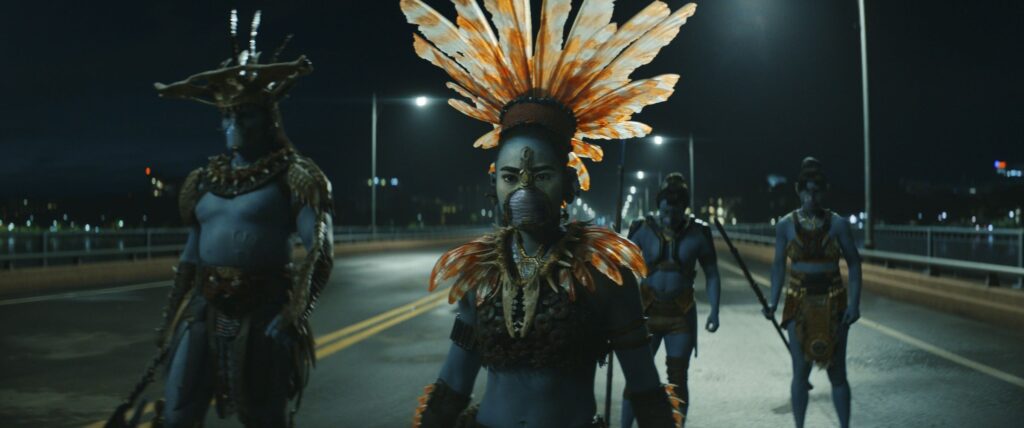But what Huerta was most moved by as he stepped up to the challenge of bringing Namor to the MCU is how Wakanda Forever’s story and its conceptualization of Talocan are celebrations of Latin American identity with a distinct focus on its shared Indigenous and African roots.
Unlike the Namor of Marvel’s comics who reigns over a very standard version of Atlantis (an advanced society sunken by a great calamity), Black Panther: Wakanda Forever’s Namor hails from Talocan, an underwater nation inspired by the Tlālōcān of Aztec mythology. Talocan — like Wakanda — is a fictional place meant to reflect a number of different cultural influences, and Huerta sees it as a concept perfect for helping people to better understand the Indigenous and African contributions to Latin American history — Mexico’s in particular.
Speaking during the recent Black Panther: Wakanda Forever press junket, Huerta described how while “almost everybody in Mexico has Indigenous or African roots,” people often like to deny those aspects of their heritage, something the 41-year-old actor sees as needing more discussion.
“Culturally, we are apart from [our] Indigenous roots,” Huerta said. “Embracing those roots, and honoring these two sources — main sources in Latin America, which [are] African and Indigenous roots — is really important. I hope this helps people to embrace who they are. Who we are.”
In addition to drawing inspiration from a variety of Mesoamerican cultures, Wakanda Forever’s story establishes its own interesting mythology that ties Talocan and Wakanda’s histories together. While those ideas serve a specific narrative function within the context of the film, Huerta said that he hopes theatergoers understand and internalize them as testaments to a cultural richness deserving of respect and recognition.
“They taught us to be ashamed of who we are, but it’s time to cut [that shame] off and say, ‘Yeah, this is who I am; I never had anything wrong with me,’” Huerta said. “The mistake was in the eyes that were looking at us — that were judging us. Most of the time, it was ourselves. It’s time to change the glasses and now reconcile who we are with our ancestors — with our old, old grandparents — and embrace them.”

